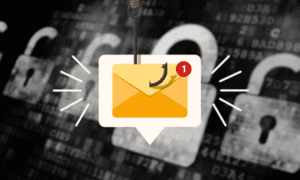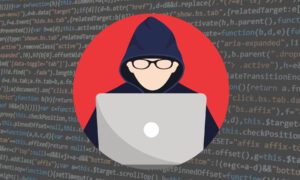The fact that online security is essential cannot be overstated. With numerous accounts across various platforms and nearly everything shifting online, maintaining robust passwords can save you from cyber threats. Astonishingly, many people still use simple or easily predictable passwords, leading to a higher possibility of their accounts getting hacked.
This article will discuss the most common passwords and the reasons for their prevalence. Additionally, it highlights the importance of choosing strong passwords, offering suggestions on how to create them and keep your digital life secure.
The Top 10 Most Common Passwords
Researchers frequently analyze data breaches and publicly available information to compile lists of commonly used passwords to raise awareness about password security. Here are the top 10 most common passwords found in recent studies:
- 123456 – This sequence is incredibly easy to remember but also extremely unsafe due to its widespread use.
- password – Despite being an obvious choice, this word remains popular among users looking for simplicity.
- 123456789 – A slightly longer version of #1 but still sharing its predictability and lack of security.
- 12345678 – Following the trend of using numerical sequences that are easy to recall offers little protection against hackers.
- 12345 – A shortened iteration of #1 demonstrates that shorter is not always better when it comes to password security.
- 1234567 – A variant between #4 and #5 shows a continuous pattern of relying on simple number sequences for passwords.
- 1234567890 – Inclusion of more digits might lead some to believe it is stronger, but this sequences predictability remains its downfall.
- qwerty – Named after the arrangement of the first six letters on a standard keyboard, this choice highlights another pattern centered around convenience but lacking security.
- abc123 – Combining an alphabetical sequence with a numerical one does not necessarily provide more significant protection if both remain predictable.
- 111111 – Repeating a single digit multiple times creates an easily guessable password and should be avoided at all costs.
Why Do People Choose Common Passwords?
The primary reasons people opt for common or weak passwords include:
- Convenience: Simple passwords like “123456” or “password” are easy to remember, reducing the hassle of having to recall complex combinations during login attempts.
- Lack of awareness: Many individuals may not realize the risks associated with using weak passwords or may be uninformed about what constitutes good password practices.
- Misplaced priorities: Users may place greater emphasis on creating accounts quickly rather than taking time to develop strong passwords. This mindset results in weak passwords that can be easily cracked by hackers.
In selecting common passwords for their ease of use and reduced mental load, people neglect essential cybersecurity acumen and expose themselves to online threats. It is critical to prioritize proper password management as an investment in your digital safety and well-being instead of an inconvenience that pushes you towards streamlined solutions like choosing common passwords shared by thousands or even millions of others.
The Importance of Strong Passwords
A robust password is your first line of defense against hacking, identity theft, and unauthorized access to your online accounts. Inadequate passwords make it easier for hackers to:
- Gain access to personal information such as financial data or health records;
- Send emails from your account with malicious links or materials;
- Access additional accounts by using gathered personal information to guess other passwords or providing the same password for numerous accounts simultaneously.
When you create a strong password and take steps to safeguard it, you reduce the likelihood that your online accounts will be compromised. This ultimately increases confidence in the security of your digital footprint.
Creating Strong and Unique Passwords
To build tough-to-crack passwords, consider the following best practices:
- Mix it up: Use uppercase and lowercase letters, numbers, and special characters (if allowed) to create a complex password. This makes your password less susceptible to brute-force attacks where cybercriminals iteratively attempt different combinations.
- Length matters: Aim for at least 12-16 characters; longer passwords are more challenging to crack than shorter ones.
- Avoid patterns: Steer clear of using easily recognizable sequences like “qwerty” or “12345.” These make your password simpler for hackers to decipher.
- Leverage phrases: Use memorable phrases or sayings that hold personal significance but would not be readily apparent to others. For example, a sentence like “MyDogCharlieLovesToPlayFetchInThePark” can be adapted into “MDCL2PFitP@2021,” making it more secure while still being memorable.
Password Management Tools
Remembering numerous complex passwords for various accounts can be a daunting task. To facilitate strong password usage and help mitigate the risks associated with poor passwords:
- Take advantage of password managers – these tools store, generate, and autofill unique, complex passwords for all your accounts.
- Consider enabling two-factor authentication (2FA) on your online accounts as an extra layer of security.
Conclusion
Maintaining effective password hygiene is critical if you are to safeguard your online accounts. By creating lengthy and robust passwords that combine different characters types while avoiding predictable patterns, you will significantly reduce the risk of being compromised by cybercriminals. Make use of password managers to help keep track of secure passwords across multiple platforms and protect your digital life in the 21st century.



































